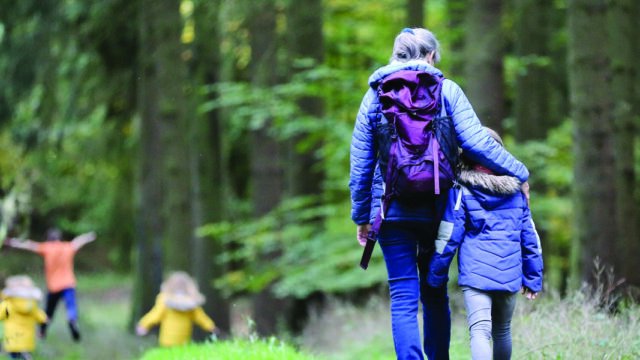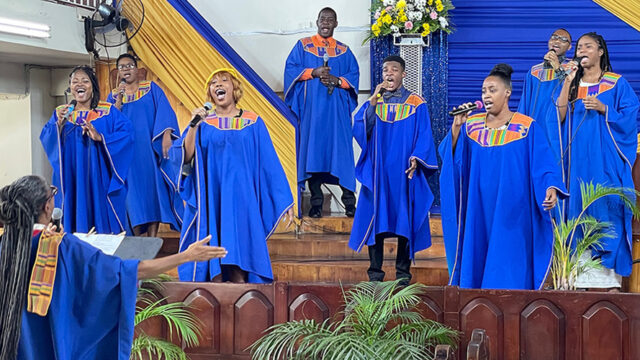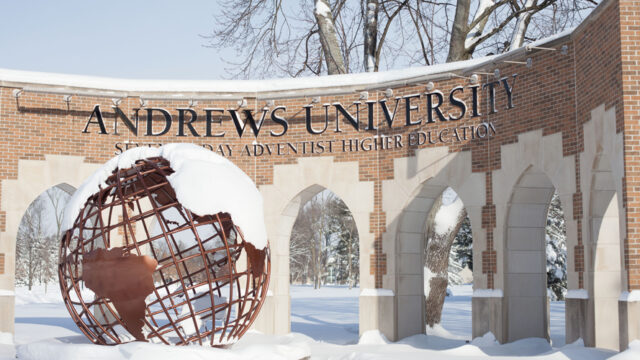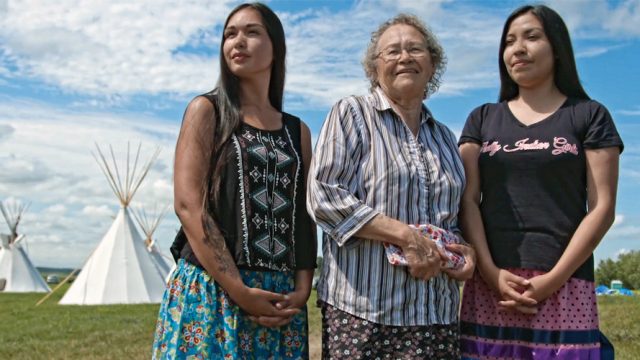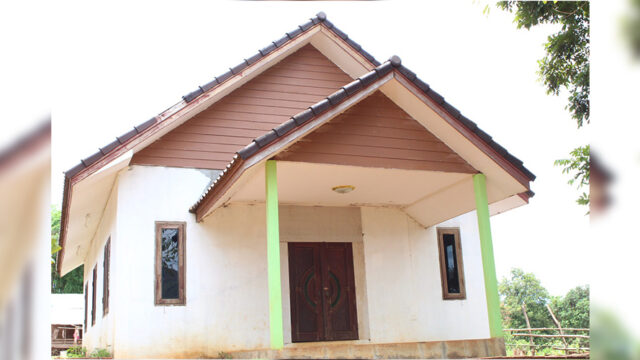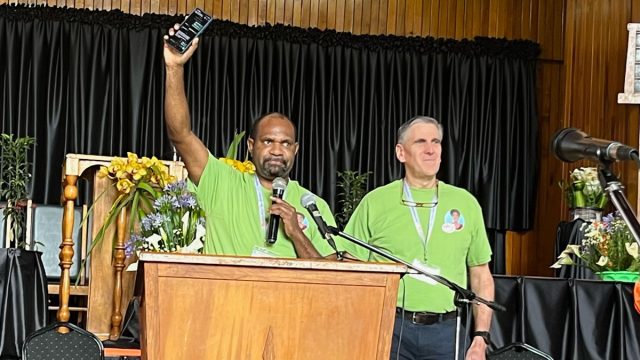They meet to network, encourage each other, and be affirmed in their calling.

For the second time, Belgrade, Serbia, has hosted the European Pastors’ Council (EPC). Themed “Engaged in Mission,” the 2024 event took place August 27-31, bringing together a large number of pastors and Bible workers from across the Trans-European Division (TED).
As part of the program, special attention was given to women pastors and pastoral spouses. They had the opportunity to meet three times during the event to discuss various topics, share challenges, support each other, pray, and network.
The meetings were held in the Atrium Hall at the newly refurbished Sava Centre, which buzzed with activity, welcoming guests with the fresh scent of newly painted walls, plush new carpets, and sparkling tile floors. In the Atrium Hall, smiles abounded as women pastors and pastoral spouses greeted one another. Their bright summer attire added to the joyful atmosphere. Coming from diverse cultures and backgrounds, and facing similar challenges and blessings, they welcomed each other with open arms, supporting one another through discussion and prayer.
Networking Time
During the first meeting on Wednesday, August 28, three topics were introduced. Karin Wieczorek, a pastor in the Swedish Union of Churches Conference, shared ideas on maintaining and developing close friendships while in ministry. She emphasized the importance of having friends from at least three different groups.
“Colleagues are valuable friends,” Wieczorek said, adding, “We should have friends outside the Seventh-day Adventist Church as well as within it.”
Gry Beate Marley, a pastor in the Norwegian Union Conference, explored how to sustain a healthy relationship with one’s spouse. Being both married to a pastor and a pastor herself, Marley reflected on her family dynamic. She highlighted three major keys: the need to prioritize time together, accept differences, and maintain friendship.
The third presentation focused on ministerial family life, with its unique set of blessings and challenges, particularly the dual role of being in ministry and a mother. Kaarina Villa, Ministerial Association director for the Finland Union of Churches Conference, inspired many attendees with wisdom from her own experience. “Prioritize your children and their well-being, and make the Sabbath special for them,” she recommended.
All three topics aligned well with the EPC theme, particularly the aspect of “extending love” to friends, spouses, and children. More than 70 attendees then split into smaller groups for further discussion on the topics and to get to know each other better.
Called to Ministry
During the second meeting, Guisèle Berkel-Larmonie, a pastor in the Netherlands Union of Churches Conference posed the question, “How do you cope with the current church climate for female pastors?” Drawing inspiration from the book of Judges, she offered insights into Deborah’s call and the recognition she may not have received despite her significant role.
“We each have our own story; we each experience recognition in our own way. Just like Deborah, our story may be misunderstood,” Berkel-Larmonie explained. “We are all in the ministry because of God’s guidance and love. No experience, good or bad, changes that fact.” She encouraged attendees with the thought that “the One who called you is the One who will always have your back.”
Once again breaking into discussion groups, attendees talked about their call to ministry, recognition, and how to uphold the pastoral calling through personal, public, financial, or spiritual challenges.
An Ever-present Need
The final meeting on Saturday (Sabbath), August 31, differed from the previous two. TED president Daniel Duda, secretary Robert Csizmadia, and Ministerial Association director Patrick Johnson joined the meeting to offer their support. “Despite many challenges in your ministry, your presence here is a testament to your resilience,” Johnson said.
He spoke about a study commissioned by TED on the experiences of women in ministry within the division territory. He presented the findings and shared proposed recommendations. Additionally, Csizmadia offered a historical overview of the significant role women have played throughout the development of the Adventist Church. After the presentations, they remained to answer questions from attendees.
For many, attending the women pastors’ and pastoral spouses’ meetings was an eye-opening experience. It reinforced the idea that passion for ministry, support, and mutual encouragement know no borders. At the same time, the experiences of various women pastors highlighted surprising differences in their countries’ laws and church policies concerning the awareness, rights, and positions of women in pastoral ministry.
Several pastors, who wished to remain anonymous, agreed that while words of affirmation are important and welcome, more visible support is needed at the conference and local church levels. They felt that this conversation should continue and include conference leaders and male colleagues in the future. “It feels like these meetings are supposed to make us feel that we are important, empowered, and heard; to make us feel that we have a voice,” one commented. “But are we? Do we really?” she asked.
The Real Connection
Overall, attendees felt love and respect for one another. New friendships were forged, and old relationships were strengthened. Some described the event as encouraging and refreshing, while others found it healing and peaceful. The majority considered it beneficial and helpful for their ministry. “I felt that I belong,” Andrea Szilvási-Csizmadia, a pastor in the Hungarian Union Conference, said. The whole event “felt like a hug,” she added.
Rosemary Lethbridge, a pastor in the British Union Conference, reflected, “We face similar problems, regardless of which country we are in. All pastors, regardless of their gender, have problems, but we have a unique set of problems.” She added, “Hearing that you are not alone is helpful and healing.” Anne Vrcelj, a pastor in the Finland Union of Churches Conference, also added, “You know that somebody understands.”
While the meetings were inspiring, they seemed to raise more questions than could be addressed on the occasion. The need for open conversation and practical, visible support was evident. Yet, attendees bid each other farewell with the hope that something positive might emerge from these discussions in the future.
The networking event provided a much-needed opportunity for real connection among women in ministry. “A more experienced female colleague was in a discussion group with me. It is helpful to talk to someone who has been where you are or has overcome the issues you face,” Lidija Djordjevic Runić, a pastor in the South-East European Union Conference. “We are all different, and it’s beautiful. We learn from each other, support each other, and cheer each other up,” she concluded.
The original version of this story was posted on the Trans-European Division news site.




